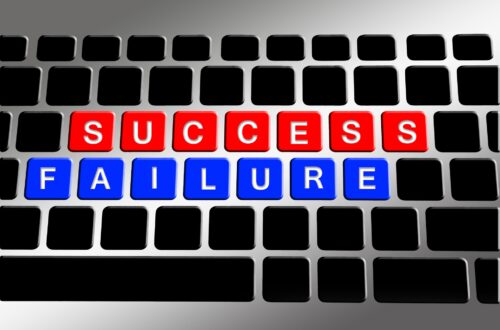
Know your Strengths, Capitalize on Them
Too often, we send employees to training to fix the areas of weaknesses. We expect people to be well-rounded to be successful. The fact is, excellent performers, are rarely “well rounded”; they are sharp. The difference between an excellent performer and an average performer is that the former is aware of their strengths and regularly cultivates them. In contrast, the latter one spends time and energy in a scattered way.
What I Mean by Strength
1. An activity is your strength when you can do it consistently, repeatedly, happily, and successfully.
2. You don’t have to have strength in every aspect of your role to excel.
3. You will excel by maximizing your strengths, never by only fixing your weaknesses. Most successful people don’t ignore their weaknesses; instead, they do something much more effective – work on the weakness to overcome the barrier, find a niche, or hire someone with complementary strengths.
Strength = Innate Talent + Knowledge + Skills
Innate Talent: Try an activity and see how quickly you pick it up, how quickly you skip steps, and twists and kinks. See whether you become absorbed in the activity that you lose track of time. Talents are the neuron connections that you find smoother and easier to use than others through genetic inheritance and childhood experience. In internet analogy, talents are like the T1 lines, have the strongest and loudest signals. Our brain wants us to use those; it seems effortless and engaging when we use those T1 lines.
Our talents come so easily that we take them for granted and think others have them too. For example, if you are good at relating with people, anyone not that way seems too rude or too proud. Or, if you are talented as an activator (who is good at starting new things), you may find the deliberative people (who are careful) lazy or risk avoiders. Instead of seeing it as others’ weaknesses, we need to be aware that these are our talents and make good use of them.
Knowledge
- Factual knowledge. As an artist, you need to know that green and red, when mixed, make the color brown. It is the vocabulary; for example, when you learn a language, you need to know the specific words and their meanings.
- Experiential knowledge is not written in the manuals; you pick them up from your experience/observation by trying different things. Experiential knowledge usually makes the difference between good and outstanding performers.
Skills
Skills bring structure to experiential knowledge. A sequence of steps, if followed and practiced, can improve their performance. If you want to build your strengths, you will need to acquire the skills. It is like a language’s grammar; without those, your beautiful prose may not get well-deserved attention.
How the 10K hours Theory Works
I get this question about spending 10k hours of focused effort on an area to become outstanding (Outlier by Malcolm Gladwell). 10 thousand hours is a very long time. It is about 6 years when you spend 30 hours every week. Only when you enjoy something, which most likely is your talent, may you have the energy to spend that much focused time in an area and be creative and resilient to overcome the barriers. It would be smart to start with what you love, energize and engage you internally, and build on it.
My Own Experience of 10K Hours
Many of you know that I made a courageous leap into coaching in 2009 when I became aware of my strengths and interests in helping people grow. 2020 was my 10th year in coaching. I started noticing that I acquired a level of ease and mastery that was not there during the first few years. When new coaches are awed by watching my sample coaching sessions, I tell them that this quality happens after so many years of deliberate practice, feedback, and focused effort under one’s belt. It was not easy. Many times I fell flat on my face; I was devastated. During those times, I whined, then focused on self-care, got support from my network, talked to my coach, and eventually went back to the “arena” with a renewed commitment. Passion, resilience, and endurance helped me come to this point.
Strengths Are Not Same As A Particular Discipline
When I talk about strengths, the context is rather generic and can be applied to any career field. Two people can succeed in two completely different disciplines by having similar strengths. To find the field(e.g., IT, retail, law, medicine, etc.), you need to pay attention to your interests/passion. For example, if you are to spend an hour in a library or a book store, what kind of books do you get drawn into? If you are unsure about your interests, you may spend some time exploring. It involves trying different activities, talking to people in relevant fields, etc. When choosing a particular role, the awareness of your strengths can give you a lot of leverage.
A Client Example
One of my clients, a software engineer with 10 years of experience, noticed that writing a lot of code or doing a detailed design was not her favorite. But when it came to collaborating with multiple stakeholders and designing a feature end-to-end from the customer’s perspective, she was on fire. She started sharing her interests openly with her manager and sought the tasks that gave her more opportunities. She networked with professionals involved in product management, took classes, and finally found an opportunity to make a lateral move within her organization. It was not easy and took at least three years of deliberate effort, but it was a meaningful journey.
What’s Next
A good start is to take this strengths assessment coaching. After that, work with your manager. Plan, utilize your talents in your day-to-day work, get training, and build skills around those so you can start capitalizing on your strengths.
————-
Book reference: Now, Discover Your Strengths
Orginally published on July 2013.Featured image: Image by alan9187 from Pixabay



